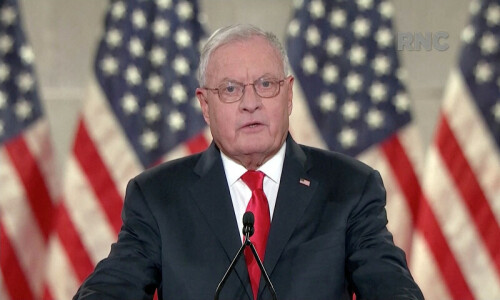China’s ability to get things done has long caused many Indians to marvel. Whether the planners in Beijing are overseeing the biggest rural-urban migration in human history or building the world’s longest high-speed rail network faster than you can say ‘tickets please’, there is a sense of purpose to everything they do. India - democratic, federal, chaotic - has never been able to pull off anything like that speed of execution.
For years, Indians have hoped that their virtues will win out in the end. Their country may plod, goes the narrative, but it plods in the right direction. China’s authoritarian system, which operates without the constraints of electors, independent courts or a free press, can dash off in any direction. It is capable of engineering 10pc growth year after year (though even that miracle has recently run out of road). Equally, it can produce the disaster of the cultural revolution and may yet conjure an economic catastrophe - say an explosion of the property sector or an implosion of shadow banking. China has only a gas pedal.
But what if Indians voted to become more like China? That is one plausible interpretation of the seemingly decisive swing in electoral support towards Narendra Modi, Gujarat’s chief minister and a prime ministerial candidate with Chinese characteristics. If nothing else, Mr Modi, whose leadership style brooks little opposition, has a reputation for getting things done. His supporters, including most of the country’s business leaders, who have flocked to Gujarat to pay homage, praise his decisiveness and hatred of red tape. In 2008 Ratan Tata, whose plan to build the Nano mini-car in West Bengal fell foul of local politics, came to him with a proposal to switch the factory to Gujarat. Mr Modi nodded - and it was done. Modinomics is the triumph of implementation over prevarication.
The parallels with a Chinese-style leadership should not be overdone. But there is at least one other way in which a Modi administration might resemble a Chinese-style approach. Like Deng Xiaoping, who departed from Communist ideology with his pragmatic entreaty to ‘let some people get rich first’, Mr Modi is more about making the economic pie bigger than slicing it up fairly.
Critics of Manmohan Singh’s Congress administration, which in its second five-year term has watched helplessly as the growth rate has slid below 5pc, say it has prioritised redistribution over expansion. Its profligacy on subsidies and social programmes, charge detractors, has obliged the central bank to tighten monetary policy, thereby choking growth.
Sadly for Congress, its redistributive policies are seen to have failed even by those who are supposed to have benefited. A recent Pew Research Centre survey, which polled almost 2,500 people across the country, found that rich and poor Indians, educated and non-educated, urban and rural, want a switch to Mr Modi’s Hindu nationalist Bharatiya Janata party by a hefty majority. Fully seven in 10 are dissatisfied with the way things are going, and 63pc favour a BJP administration over a Congress one. No fewer than 78pc have a favourable view of Mr Modi, with just 16pc disapproving.
What do people expect from him? Asked which party would do a better job helping the poor, 54pc had faith in the BJP, with only 21pc selecting Congress. That is surprising given that Congress has funded a food-guarantee programme covering almost two-thirds of the population and a rural employment guarantee scheme ensuring 100 days of subsidised work per household. Similarly, asked which party would be better at controlling price rises, another crucial concern for poor people, the tally was 55pc in favour of Mr Modi’s BJP against 17pc for Congress.
Since faster growth was unleashed with the reforms of 1991, which dismantled the red-tape restrictions of the licence Raj, hundreds of millions of Indians have done better. But hundreds of millions more have been left behind. The crucial point, though, says Jagdish Bhagwati, a prominent Indian economist at Columbia University, is that those 20 years have demonstrated poverty to be a ‘removable condition’. Indians have undergone what he calls a ‘revolution of perceived possibilities’.
Increasingly, according to this theory, they may be attracted not to promises of Nehruvian-style equality but rather to the prospect of Deng-style growth. Part of Mr Modi’s attraction is that, by sheer force of will, he may be able to override some of the checks and balances of Indian democracy and introduce some of the clearheadness of growth-driven China. Under a Modi administration, the hope is, land will be cleared, permissions will be granted, and roads and other infrastructure will be built. In this cheerful scenario - far too optimistic, according to his many detractors - he will do for India in its entirety what he has been able to achieve for Gujarat.
Of course, India will never really be like China. Mr Modi is a fiery orator who can rouse a crowd - a quality that, at least since Mao Zedong, has hardly been required by unelected Chinese leaders. Nor can India, fractious and with significant power devolved to the states, ever emulate an authoritarian China in which power is concentrated in the centre.













































